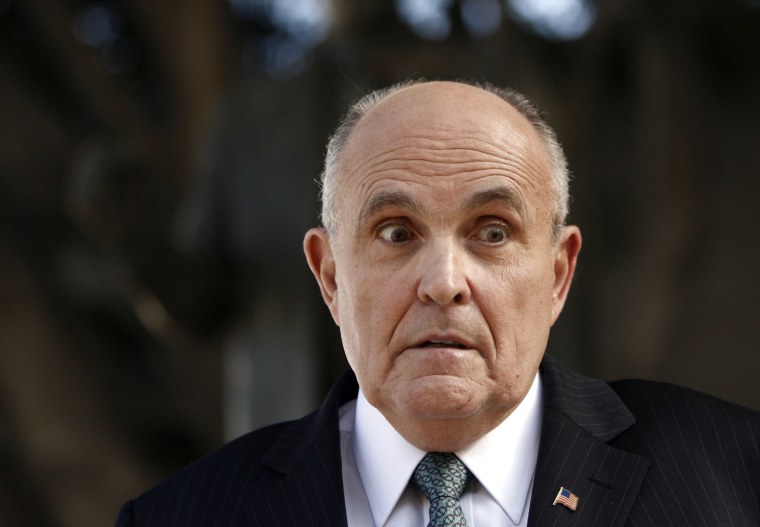Last week, Rudy Giuliani took his legal defense of Donald Trump in a curious direction, insisting that the president's campaign didn't collude with its Russian benefactors because Team Trump "never used" content from Putin's government.
For a variety of reasons, this was not a good argument. For one thing, it suggests any evidence of the Trump campaign utilizing information from Russia necessarily becomes evidence of collusion. For another, there's already evidence of the Trump campaign utilizing information from Russia -- on plenty of occasions, including making frequent use of materials stolen by Russia and disseminated through WikiLeaks.
All of which brings us to the latest HuffPost report on the former mayor's evolving defense.
In a recent interview with HuffPost, Giuliani initially disputed the notion that Trump's daily citing, in the final month of his campaign, of Russian-aligned WikiLeaks and its release of Russian-stolen emails constituted "colluding" with Russia."It is not," Giuliani said.Then he switched tacks."OK, and if it is, it isn't illegal... It was sort of like a gift," he said. "And you're not involved in the illegality of getting it."
So let me get this straight. Russia stole Democratic materials to put Trump in power; Trump solicited and welcomed the Russian assistance, and according to Giuliani, this may or may not be evidence of collusion.
Either way, we're not supposed to care, because according to the president's lawyer, the president merely took advantage of "a gift" from a foreign adversary that attacked our election.
The Washington Post's Aaron Blake did a nice job documenting the ever-changing nature of the Trump World argument, from the initial bogus talking point -- the campaign never had any communications with Russian officials -- to the latest rhetoric from Giuliani.
This matters because, as a rule, when a president and his team struggle to keep their stories straight, and routinely move the goalposts, it's evidence of a deeper problem.
As for Russia's "gifts" to the president ahead of the 2016 election, Rachel last night highlighted some fascinating excerpts from former Director of National Intelligence James Clapper's new book, Facts and Fears, including this one:
"[W]hat I did see as DNI ... is that the Russians and the campaign seemed to employ strikingly parallel messaging in social media posts and public statements, effectively complementing each other to great effect with no attempt to hide it. That combined effort appeared to go well beyond candidate Trump`s calling on a foreign power to find 30,000 missing emails belonging to his political opponent ... or his praise for WikiLeaks ... for publishing materials Russian intelligence had stolen."On a routine basis, whenever the public published an allegation that hurt Clinton, the Russians would repeat, amplify, and embellish that claim. And when the Russians promulgated a conspiracy theory about her, Trump would repeat it at campaign rallies and on Twitter. Whether secretly coordinated or not, whether this was actual collusion or not, this parallelism constituted a putative team effort by the Russian government and the Trump campaign."
Giuliani's assertion -- "It was sort of like a gift" -- isn't going to cut it.
